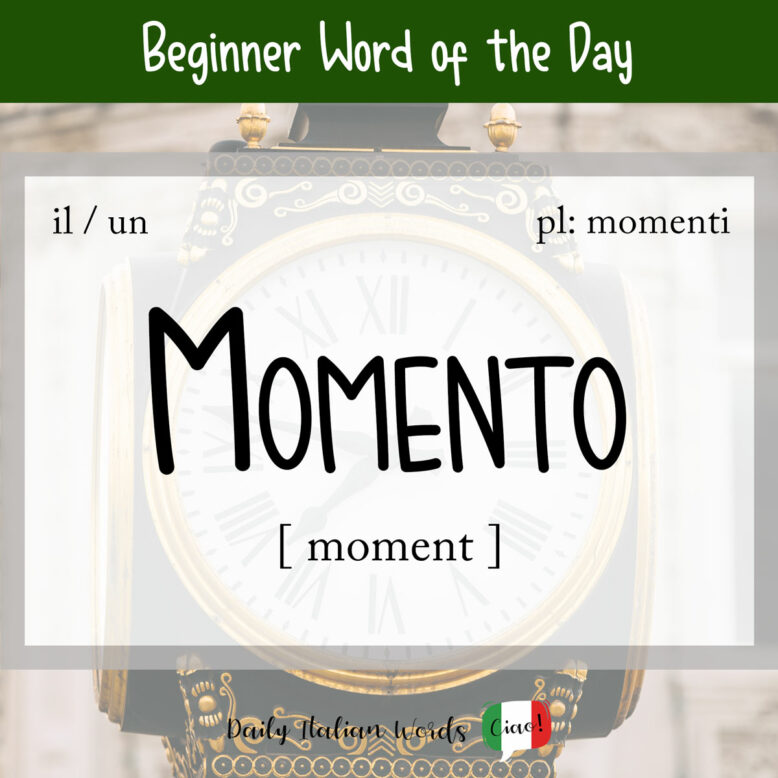It should be pretty easy to guess the meaning of the word momento just by mentally removing the word-final o!

Momento comes from the Latin momentum, derived from the root of movere meaning “to move”. Because it is a masculine noun, it takes the following definite and indefinite articles:
- il momento = the moment
- i momenti = the moments
- un momento = a moment
- dei momenti = (some) moments
Aspetta un momento, non sono ancora pronto!
Wait a moment, I’m not ready yet!
Non c’è un momento da perdere!
There is no time to lose!
Momento appears in a very wide range of time-related expressions, which in English often contain the word time rather than moment. Here is just a handful you should add to your vocabulary in order to sound like a true Italian!
- da un momento all’altro = any moment (now)
- dal momento che = since / from the moment that
- al momento = now / at this time
- in un secondo momento = some other time
- gli ultimi momenti = one’s final moments (before death)
- a momenti = almost / nearly
- all’ultimo momento = at the last moment
- sul momento = at the time / right now
- per il momento = for the time being
- ogni momento = anytime / always / every moment
- il momento della verità = the moment of truth
Sbrighiamoci, il festeggiato arriverà da un momento all’altro!
Let’s hurry up, the birthday boy will arrive any moment now!

As suggested above, momento can also be translated as time or period in Italian, referring to an extended duration or circumstance.
So che stai passando un brutto momento. È un momento difficile per tutti noi.
I know you’re going through a bad time. It’s a difficult period for all of us.
Abbiamo passato dei bei momenti insieme, io e te.
We had some good times, you and me.

Like the English word moment, momento can also be synonymous with the words opportunity or chance in certain contexts.
Dobbiamo cogliere il momento!
We have to seize the moment/opportunity!
Del momento is an expression that describes someone or something that experiences great success during a certain period. For example, l’uomo del momento translates to the man of the hour.
Non vedere il momento, on the other hand, is a less common synonym for the expression Non vedere l’ora (to look forward to / to not be able to wait).
Heather Broster is a graduate with honours in linguistics from the University of Western Ontario. She is an aspiring polyglot, proficient in English and Italian, as well as Japanese, Welsh, and French to varying degrees of fluency. Originally from Toronto, Heather has resided in various countries, notably Italy for a period of six years. Her primary focus lies in the fields of language acquisition, education, and bilingual instruction.


